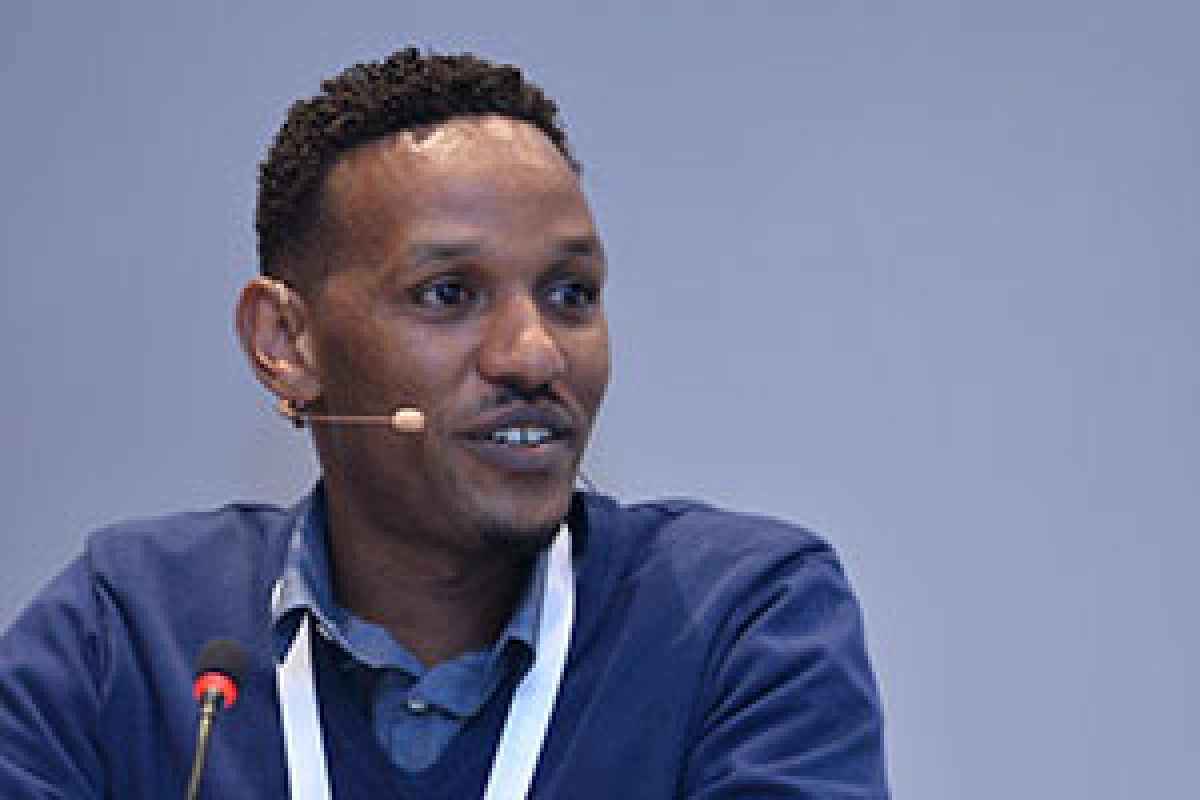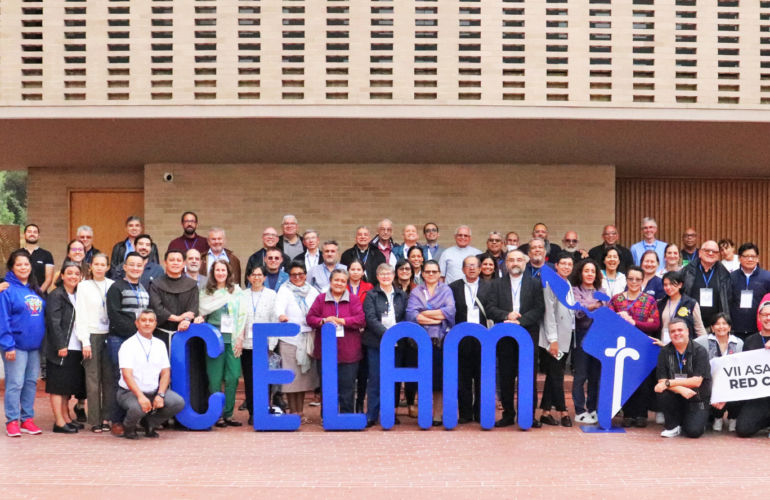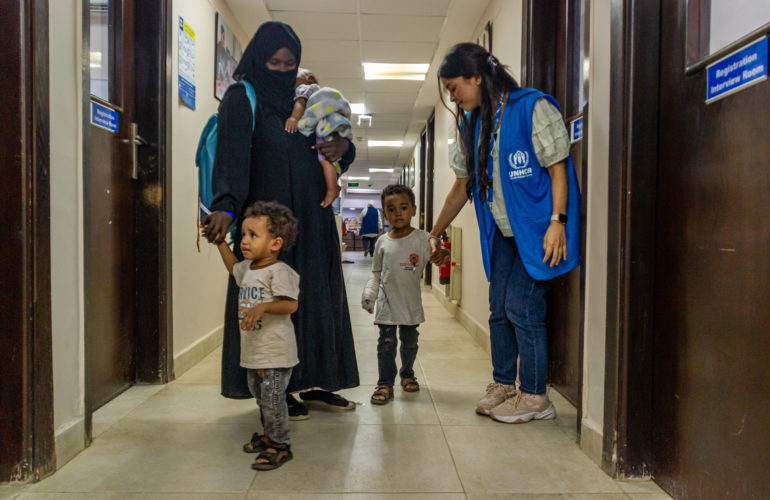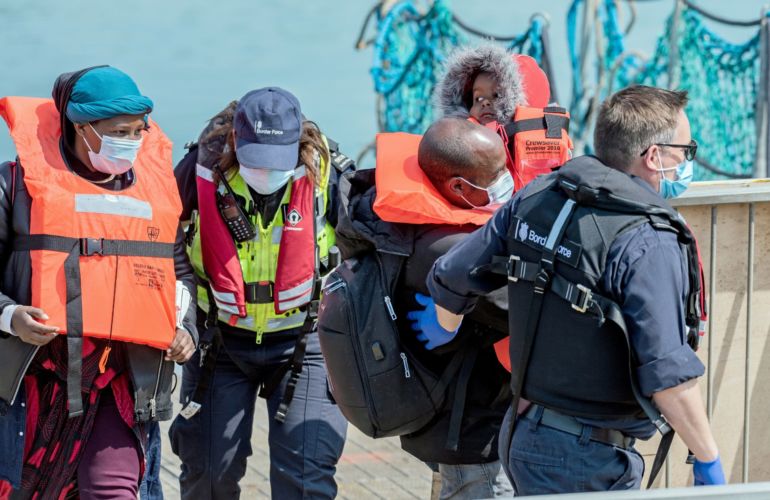A Refugee From Ethiopia Stranded on a Boat in the Mediterranean

Abu Kurke Kabeto is a young man from the Oromo region of Ethiopia. He currently lives in the Netherlands with his wife and his two years-old child. When you look at him, the first thing that immediately strikes you is his friendly smile and his positive attitude. You would never imagine what he has gone through in his life.
Escaping from discrimination and repression against Oromo people in his country, Abu Kurke left Ethiopia in 2008 and went to Sudan. Through the Sahara desert he then reached Libya in 2009. From there, he made various attempts to cross the Mediterranean in search of a better life in Europe. In 2010, he embarked on a rubber boat and made it to Lampedusa, Italy. However, the boat was pushed back to Libya by the Italian authorities. He ended up spending 8 months in prison in Libya.
In March 2011, he found himself again on a dinghy boat that attempted the sea crossing from Libya to Lampedusa with 72 migrants on board. After 19 hours at sea, the boat started running low on fuel, and people were beginning to feel anxious. They called Father Mussie Zerai, an Eritrean priest based in Europe, asking for help. After receiving the distress call, Father Zerai immediately alerted the Italian coast guard and NATO command in Naples. The Italian coast guard sent out an alert to all vessels in the area, asking for intervention.
The captain of the migrants’ boat suddenly received a call from the Italian authorities, who were asking for the GPS coordinates. Shortly after the call, the phone battery of the captain ran out. To make things worse, the boat completely ran out of petrol.
Abu recalls: “On the second day, the sea was getting very rough. That night two helicopters approached our boat. We saw them flying above us. We clearly recognized the word ‘Army’ written in English on one of them. Three white soldiers were on board. We thought we would be saved. But instead of rescuing us, the soldiers dropped water and some biscuits towards us. There were 72 people on the boat and, within three minutes, there was no water and no biscuits left.
We were communicating with them with our hands, as the noise of the helicopters was very loud. We showed them the two babies we had on board, and urged them to take them. But they said they couldn’t and they would come back later. We insisted, please please please, take the babies! They went away, and we never saw them again.
Three days later, two jet fighters came close to the boat. They went around us two times, the military officials took even pictures of us. In the meantime, the babies had died. We showed them their bodies, but they didn’t do anything. They went away.”
With no petrol left, no phone battery, the migrants were stranded in the middle of the Mediterranean for two weeks. Abu explains that people were going crazy. Some migrants jumped in the ocean, in despair. He started eating toothpaste in order to have the feeling to have something in his mouth. “Toothpaste is good food during these tough times” the captain had told him. Abu was badly suffering from an eye infection due to a sunburn. “When I ate the toothpaste, my eyes suddenly opened again”.
“It was horrible to see so many people dying in front of me, and not being able to do anything. But the worst thing was to hear the babies crying for so long and not being able to give them food, and eventually see them dying. Even today, I can’t forget the babies crying for food”.
Two weeks later the boat reached the coast. “We thought we were arriving in Italy and would finally be in Europe, but then we saw the Libyan sea flag and we realized that the boat had been drifted back to where it had started. We were back to Libya.” Abu and the other 9 survivors were very weak and needed medical care. “But instead of providing us access to medical facilities, they put us in prison”.
“Finally, it was the Catholic Church in Libya which provided us with medical care, as soon as we had been released from prison”. From Libya, he attempted the crossing again in July 2011 on a fishing boat, together with his wife. They finally made it to Lampedusa. From there, they reached the Netherlands, but were eventually arrested because of their double asylum requests in the European Union. Following the Dublin Regulation procedure, the Dutch authorities sent them back to Italy. Finally, thanks to the personal help of a Dutch Parliamentarian, Abu and his wife were finally able to get refugee status in the Netherlands.
Abu’s wife gave birth to their son in the Netherlands. Currently, the family receives a modest contribution from the government for accommodation, food, and education. Abu takes classes to learn Dutch and goes to college with the aim of getting a diploma in logistics. His wife took up training to become a nurse.
“Today, as I see many more people going through the same experience – like little Aylan Kurdi who was found dead on a beach in Turkey – my heart is broken. I feel very sad about what is still happening. The international community can do something to stop this situation. There is a solution: world leaders must remove dictators and ensure that people have rights in their countries, so that they are not forced to leave.”
RELATED VIDEO
Watch the video of Abu Kurke Kabeto as he shares his story during the Global Forum on Migration and Development (GFMD), held in Turkey from 12 to 16 October 2015.


